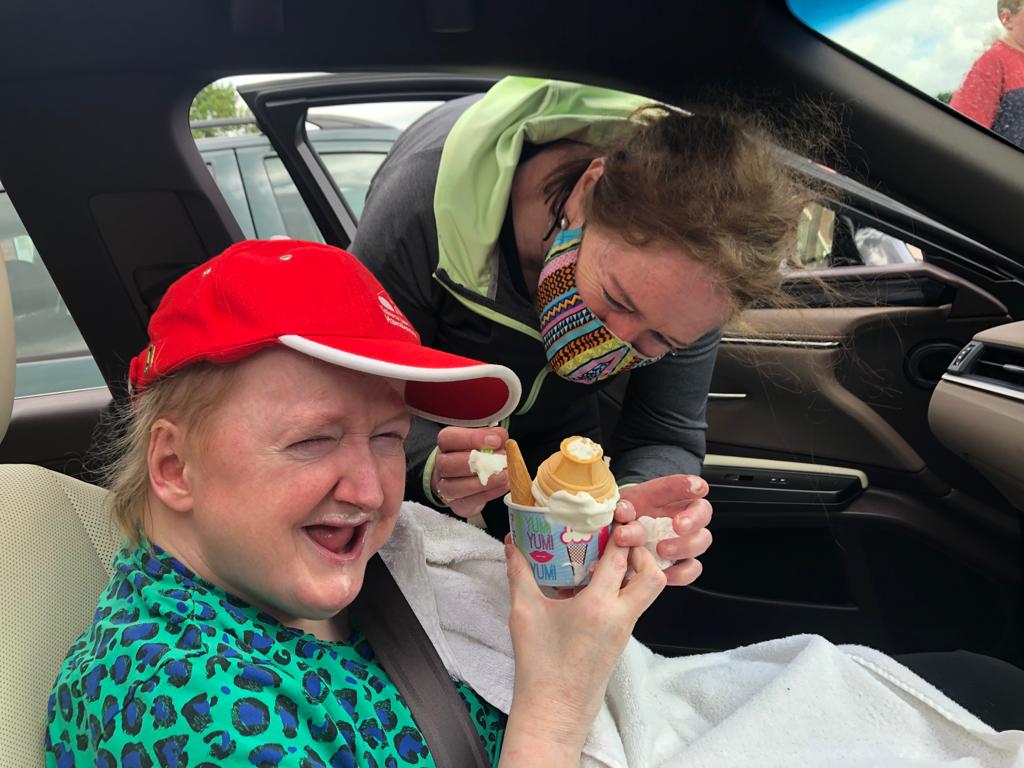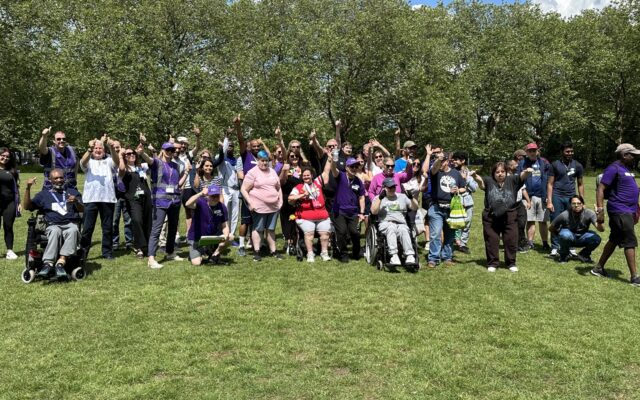“While normal life returned for most when lockdown was lifted, for many with learning disabilities, a lot of services have been very slow to return. Like many families, we wonder: will they ever come back?”
These words from Brenda Aaroy, based on her experience with her sister Orla McKenna, reflect how Covid still affects lives of those needing the most support.
This is although it is two years since lockdown was lifted.
Aaroy, whose sister has limited communication and lives in a Belfast care home, spoke at a recent online event organised by Manchester Metropolitan University (MMU) to mark the end of the Coronavirus and People with Learning Disabilities Study.
New plus old problems
The two-year, UK-wide study involved almost 1,000 people with learning disabilities plus 500 family carers and paid support staff. It has reported findings four times since winter 2020.
The study underlines how those with more complex needs face permanent disadvantage as a result of the pandemic. There are also fresh problems, including the cost of living crisis and a shortage of support workers.
Aaroy was involved in the study as part of carers’ network Families Involved Northern Ireland. Her sister’s mobility deteriorated during Covid; she can no longer walk unaided and was recently hospitalised for viral pneumonia. The day services that had ground to a halt have just been reinstated, but for only four days a week.
She also speaks warmly of her sister’s passions: “Orla sings like a bird and she may not have words but, with the songs she knows, she knows the tunes perfectly. This is what I missed most when we were apart.”
According to the study, 14% of people with learning disabilities and 19% of those supporting them do not have enough money. Visitor restrictions remain for a minority of those in residential care although few are still shielding.
The health of those with profound and multiple learning disabilities was reported to be worse than that of other people; 40% of the former said they were in good health compared to 59% of the latter.
The research is a landmark project. Not only is it the largest research on Covid and beyond to directly involve people with learning disabilities but also it is deeply collaborative.
Research was conducted by UK universities including Bristol, Cardiff, Kent, Glasgow, University College London, Ulster University and the University of South Wales. Partners working together to gather research and shape interview questions included Learning Disability England, All Wales People First, Promoting a More Inclusive Society in Scotland and Families Involved Northern Ireland.
This approach brings another benefit, as MMU research fellow Sue Caton says: “It’s been a catalyst for creating a UK-wide community of people with shared ambitions and has been based on trust. Hopefully those connections and relationships will continue long after the end of the project.”
For Aaroy, the study proves that social care staff should be better valued and people’s rights upheld.
She adds: “The researchers have provided the evidence and it is important that any new policy reflects this. We need to see that people with learning disabilities are afforded the same rights as everyone else, are respected as every other human being and have the chance to be included in our communities, close to family and friends.”
The researchers have provided the evidence and it is important that new policy reflects this
The study says, in effect, that marginalised groups need to be involved in responses to any public health crisis and recovery from it.
Chris Hatton, MMU professor and regular contributor to Community Living, led the research alongside Warwick University professor Richard Hastings. As Hatton says: “Nobody can say they didn’t know.”





